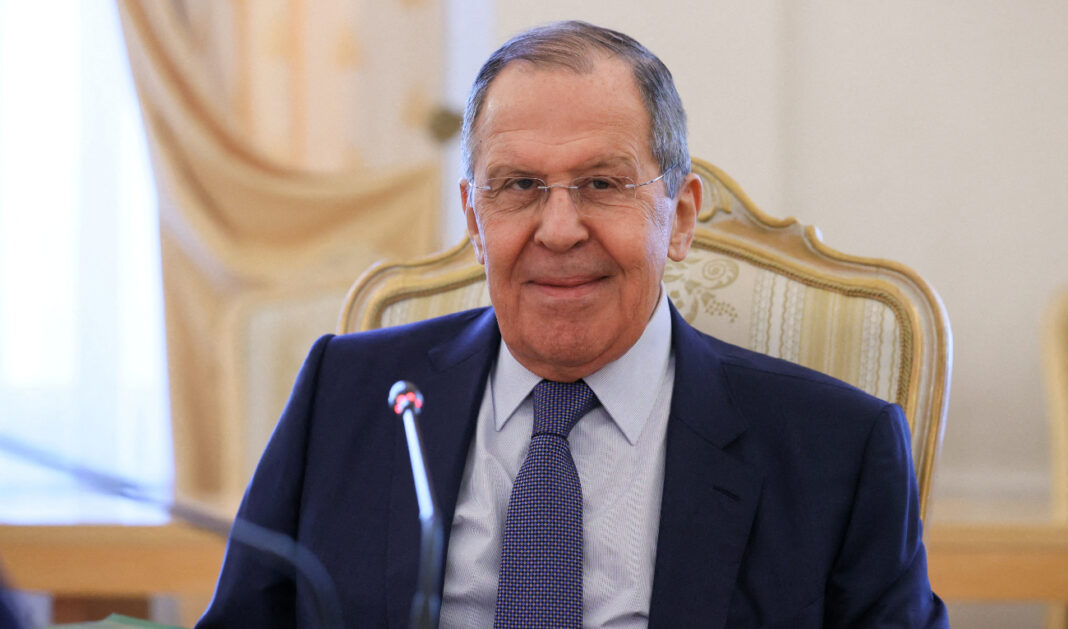NEW DELHI: Reluctant to condemn Russia’s invasion of Ukraine, India has been facing mounting Western pressure ahead of the visit of Moscow’s top diplomat on Thursday, in what analysts say is complicating New Delhi’s middle path among the world’s powers.
India has abstained from UN resolutions censuring Russia, its longtime ally, who began a multipronged assault on Ukrainian territory in late February, calling only for a cessation of violence, as it continues to buy Russian oil and other goods amid international sanctions.
Western envoys, including US Deputy National Security Adviser Daleep Singh and Britain’s Foreign Secretary Liz Truss, have flown into New Delhi this week prior to Russian Foreign Minister Sergei Lavrov’s visit to pull India off the fence and press for tougher action.
Lavrov’s trip is likely aimed at urging New Delhi to do the exact opposite.
“India is having to navigate a very difficult relationship from both sides. India has strong ties with Russia historically and of course in recent years ties with the West,” Prof. Harsh V. Pant, head of strategic studies at the New Delhi-based Observer Research Foundation, told Arab News.
New Delhi’s ties with Moscow span over seven decades, with half of India’s military hardware being sourced from Russia. On the other hand, its partnership with the West has been growing for the last 20 years, and it is a member of the Quad, a four-state strategic security dialogue — comprising also the US, Japan and Australia — that was established in the face of increased Chinese economic and military power, which poses a threat to its regional position. This threat has been heightened to extreme levels since the 2020 border clashes.
Tensions on the India-China border in the northern Himalayan region of Ladakh that broke out in April 2020 have led to a deterioration in relations between the two Asian giants and the deployment of tens of thousands of extra troops to the region.
“At a time when India is facing Chinese soldiers along the border, you really cannot antagonize a partner on which you are dependent for 55 percent of your defense imports,” Harsh said.
“Russia continues to be a very reliable supplier of defense technology in defense equipment which is not something that the West has been best at.”
He said that while the West’s approach to Russia has been one of isolation and sanctions, it is not what India could do.
“India cannot really take a similar position because India does not want the Russia-China axis to go even stronger,” Harsh added. “I think the challenge for India is to have a channel of communication open with Russia, even at the most difficult of times.”
Manoj Joshi, a distinguished fellow at the Observer Research Foundation, said that Russia’s historical support for India, especially in its conflicts with arch-rival and neighbor Pakistan, also plays a major role in New Delhi’s reluctance to condemn Moscow.
“Since the 1950s, the Russians have generally backed India on South Asia policies,” he said. “There is a lot of congruence, political congruence which goes back a long time. And in turn, the Indians were soft on the Russians for their invasion of Hungary in 1956, or the invasion of Afghanistan in 1979. So, there has been this kind of a relationship.”
But besides the Western pressure on India to take sides, there may also be another dimension to the visits of its envoys.
Anil Trigunayat, India’s former ambassador to Jordan, Libya and Malta, described the recent developments as possible attempts to have New Delhi play a role in ending the Ukraine crisis.
“They are trying to now somehow stop this conflict but, in my view, they are not becoming the direct agents for stopping it,” he said, adding the West knows that India has a strategic relationship with Russia and its President Vladimir Putin.
“What they want to tell is that India should try to use its personal clout, which we have with Russia and with President Putin, to expedite the closure as soon as possible,” Trigunayat told Arab News. “They know that if India condemns (Moscow), they will have no leverage over Russia.”




